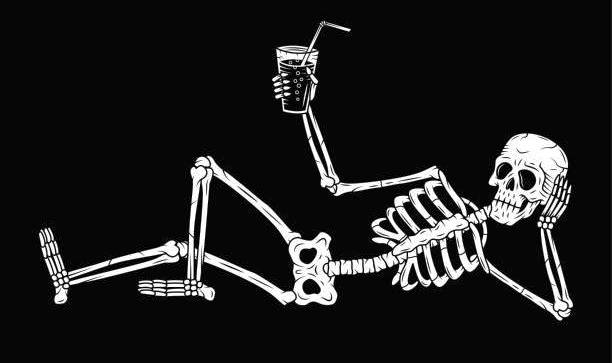
How old are your bones? 10 years
The skeleton is constantly replacing itself, explains Dr. Peter Selby, an osteoporosis expert base at Manchester Royal Infirmary in the UK. It takes about 10 years to do this completely.
Old bone is broken down by cells called osteoclasts and replaced by bone-building cells known as osteoblasts. At any one time we have a mixture of old and new bone as the turnover rates differ throughout the body.
When we hit middle age this renewal process slows down, so our bones tend to get thinner, which is why osteoporosis often sets in.
Essential vitamins and minerals for Bone Health
If you eat a healthy diet, you can get many of the nutrients you need for bone health. But especially as we age, adding supplements into the mix can help us make sure we’re covered. Here’s a look at some essential vitamins and minerals for bone and joint health that we may want to supplement:
- Calcium:
Most of us know that calcium is one of the most important minerals for bone health. We often get the calcium we need from foods and beverages like milk and yogurt, but supplements can help if we’re not getting enough. As The Mayo Clinic puts it, “Although diet is the best way to get calcium, calcium supplements may be an option if your diet falls short.” Helping your body absorb calcium is also crucial. That’s where some of the other bone health boosters come in.
- Vitamin D3
Vitamin D3 helps your body absorb calcium, and vitamin D deficiencies can lead to bone loss. We get essential Vitamin D from food sources and sunlight, but Vitamin D deficiency is a real problem, especially for people with dark skin and older adults. In this case, it is recommended to take some vitamin D, usually 1000 to 2000 IU.
- Vitamin C:
Many of us know that Vitamin C plays a significant role in immune function. It also helps with the formation of the protein collagen, which is essential for bone mineralization. It’s an excellent supplement to take daily.
- Vitamin K2:
Vitamin K2 helps deliver calcium to the bone. If you’re vitamin K2 deficient, it can lead to low bone density and increase your risk of a fracture. However, many of us get the Vitamin K2 we need from our diet. A supplement of vitamin K2 will prevent calcification of the arteries.
- Magnesium:
Magnesium is a superstar mineral for bone health. It helps your body use Vitamin D and calcium. Studies show that magnesium deficiencies contribute to osteoporosis. Adequate magnesium levels can reduce the risk of fractures and promote healing. However, there are different forms of magnesium available and your health practitioner can help you choose the correct one.
Other Supplements Can Help With Bone Health
In addition to vitamins and minerals, other products can help with bone and joint health.
- Fish oil/omega-3 fatty acids help build healthy cells, including the materials that cushion your joints. Omega 3 can also have anti-inflammatory properties. Look for fish oil supplements that contain both DHA and EPA.
- Glucosamine and chondroitin have become popular joint health supplements in recent years. They are natural components of the tissues that make up cartilage, which cushions our joints. Studies show mixed results for overall effectiveness, but some patients report improvement in joint pain and arthritis benefits.
- Collagen supplements have also taken off in recent years, and with good reason. Collagen is an essential protein that plays a role in everything from skin structure to blood clotting to bone health. Studies have shown that collagen peptides can boost bone density, especially in post-menopausal women, and potentially counteract osteoporosis. Collagen is available in powder supplements and from food sources like bone broth.
- Plant-based supplements like Turmeric and Ginger can help relieve inflammation and have other health benefits, including immune-boosting and antibacterial properties.
When used appropriately, supplements can play a role in boosting bone and joint health. But we should combine them with a broader approach, including:
- A healthy diet with lots of vegetables and leafy greens.
- Fitness program including both cardio and strength training.
Christine Gozlan
B.H.SC. Naturopathy
Dip. Herbal Medine
Dip. Nutrition
